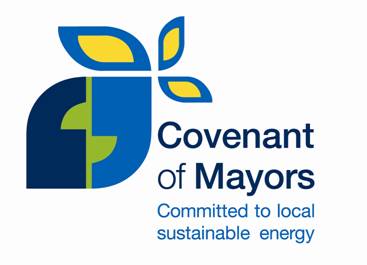Sustainable Energy Action Plans (SEAPs)
A SEAP is the key document in which signatories of the EU Covenant of Mayors outlines exactly how it intends to reach its CO2 reduction target by 2020. It defines the activities and measures set up to achieve the targets, together with time frames and assigned responsibilities. Covenant signatories are free to choose the format of their SEAP, as long as it is in line with the general principles set out in the Covenant SEAP guidelines.

The Covenant of Mayors' guidance states that a SEAP should display the following:
Overall Strategy consisting of:
- Objectives and targets
- Current framework and vision for the future
- Organisational and financial aspects:
- Coordination and organisational structures in place
- Staff allocation
- Stakeholders and citizens involvement
- Budget and financial sources for investments within SEAP
- Measures for monitoring and SEAP review
Also -
- Baseline Emissions Inventory
- Planned actions for duration of plan up to 2020 including:
- Estimated energy saving, increased renewable production and estimated CO2 reduction
- Estimated costs
It is important that the SEAP has high level political support, stakeholder involvement, accurate Baseline Emissions Inventories, and a clear set of costed actions covering: built environment, transport and renewable energy. It is also necessary for the SEAP to be reviewed regularly and for actions to be updated and rolled forward.
STEP UP Cities’ SEAPs
Prior to the STEP UP project, each of the partner cities had produced a SEAP, following the Covenant of Mayor’s approach. Through the STEP UP project, the cities have worked to enhance the process of SEAP development, delivering enhanced SEAPs in the four partner cities which are as comprehensive and integrated with other plans as possible. Each city has gained political approval for their enhanced SEAP and is now working to implement the actions detailed in the plans.
The enhanced SEAPs are available at the links below:
Ghent
Glasgow
Gothenburg
Riga
STEP UP has also documented the approach taken to creating an enhanced SEAP in a guide for cities. This guide is intended to provide advice and a structured process for other cities interested in developing an enhanced SEAP of their own, providing key recommendations, tools and case studies. Click here to find out more: DevelopingEnhanced SEAPs: A STEP UP Guide for Cities
Why is having a SEAP important?
A SEAP uses the results of the Baseline Emissions Inventory to identify the most effective courses of action and opportunities for reaching the city's or local authority's CO2 reduction target. It clearly defines reduction measures along with time frames and responsibilities, which crucially transforms long term strategies into actions.
What is the scope of a SEAP?
A city's SEAP refers to action at a local level within the remit of the local authority. The SEAP concentrates on measures taken to reduce CO2 emissions and energy consumption by all users, thus it should also cover all actions concerning the public and private sectors city wide. However the municipality must play an exemplary role and undertake significant measures that act as a beacon to all stakeholders.
The Covenant of Mayors suggests SEAPs should focus on buildings, equipment/facilities and urban transport. The SEAP could also refer to actions related to local electricity generation through CHP, Photo Voltaic (PV) development or district heating networks. It should also refer to other areas where the local authority can influence energy use through the planning process, integrating sustainable energy projects into the local planning framework. The SEAP should encourage markets for energy efficient products and services and endeavour to influence changes in consumption patterns through working alongside stakeholders and citizens.